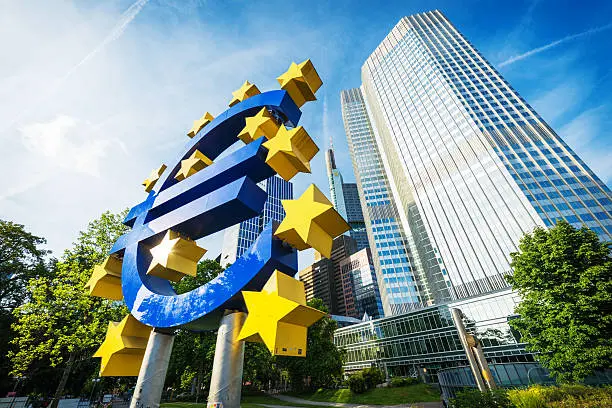News
European Banks Achieve Stronger Revenue Growth in Q3
European banks posted stronger-than-expected revenue growth in the third quarter as rising interest rates, improved loan margins, and increased trading activity boosted overall performance. The results indicate renewed stability in the region’s financial sector after years of economic pressure and uncertainty.

European banks have said that their third-quarter revenue growth was greater than expected. This shows that the banking sector in the area is getting back on its feet. The profits of big banks in the Eurozone and the UK went up because of higher interest rates, more lending, and more individuals buying and selling in the market. One of the key reasons for this growth is that net interest margins have gotten bigger. As central banks raised interest rates to battle inflation, the rates on loans went up faster than the rates on deposits. This helped banks make more money from their normal business. This shift has greatly improved earnings, especially for large retail and commercial banks that make a lot of money from lending and mortgage portfolios. European banks made more money from trading than from loans and mortgages. Because the currency, stock, and commodities markets were more volatile, clients were more active in trading and investment banking. This gave banks and other financial companies new possibilities to make money through capital market operations, asset management, and advisory services. European banks are currently in an even better financial state because they are better at managing their costs. Over the past few years, a lot of banks have made their operations more efficient, shut down branches that weren't doing well, and invested in digital banking services. These efficiency methods let a bigger share of revenue go straight to profits by lowering costs. Another big reason why the Q3 statistics were outstanding is that the job market in Europe is still solid. Stable jobs, moderate pay growth, and steady consumer spending all helped keep the demand for loans robust and the risk of defaults low. So, banks could take some of the money they had set aside for bad loans in the past, when things were less clear. There are still flaws that need to be fixed, though. When borrowing costs go up, people and corporations may stop spending and investing in the future. The rising expenses of paying off debt are having a big effect on small and medium-sized businesses (SMEs). Still, banks are hesitant about giving out loans. They carefully assess the potential of growth against the need to keep risk in check. People are still worried about the health of the international economy and geopolitical conflicts. The European banking sector has been strong in the third quarter, but things like changes in energy prices, trade problems, and political instability could yet hurt performance in the next few months. Even with these risks, investors feel much better about European banks and other financial companies. After the earnings reports came out, banking stocks rose up a little, and experts raised their estimates for how the industry will fare in the near future. A few big banks also stated they will give shareholders more money through dividends and stock buybacks. This is a sign that their capital levels are better. Digital revolution and initiatives to be more environmentally friendly are also changing the future of banking in Europe. Banks and other financial institutions are spending a lot of money into projects that help the environment, AI-powered risk assessment tools, and working with fintech startups. These new ideas are not only making things operate better, but they are also bringing in customers who care about the environment and know how to use technology. Overall, the higher revenue growth in Q3 illustrates that European banks are progressively getting back on their feet after years of economic duress. The sector is better able to handle issues in the market in the future and will be a vital part of helping the economy recover across the continent thanks to stronger financial health, strategic modernization, and cautious optimism.
PUBLISHED: November 24, 2025

Jeffrey E. Byrd connects the dots that most people don't even see on the same map. As the founder of Financial-Journal, his reporting focuses on the powerful currents of technology and geopolitics that are quietly reshaping global systems, influence, and power structures.
His work follows the hidden pipelines—where data, defense, finance, and emerging technology intersect. He highlights the players who move behind the curtain: governments, intelligence networks, private security alliances, and digital industries shaping tomorrow's geopolitical terrain.
Jeffrey’s mission is to give readers clarity in a world where complexity is used as strategy.
Read More




